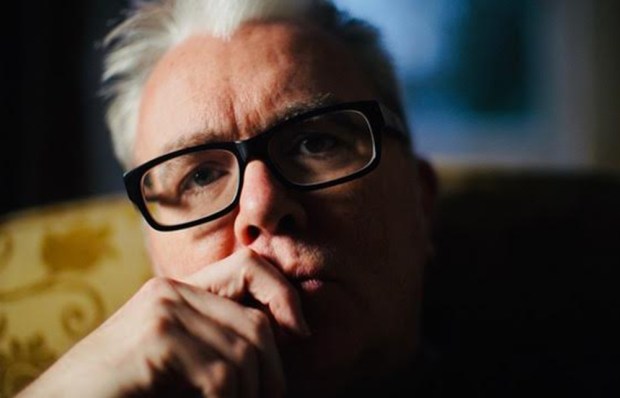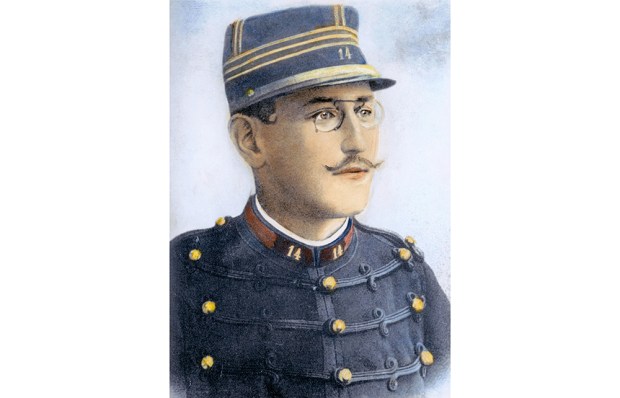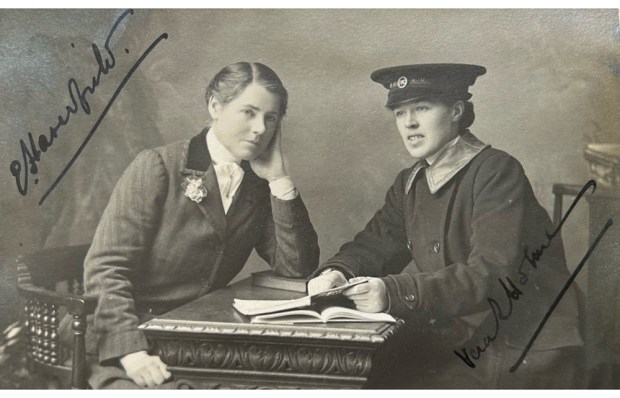‘Who is AOC?’ the back cover of this book asks. ‘A wack job!’ says Donald Trump. ‘She needs to run for president when she turns 35,’ Cardi B explains. Alexandria Ocasio-Cortez is the youngest congresswoman in America. She goes by her initials (like FDR and JFK) and is
a Latina from the Bronx and Westchester, with no background in policy making, a bartender. She has a boyfriend; she uses social media to communicate with fans and fight with political foes, and also to cook ramen noodles in front of millions of people while chatting with them about structural inequality and mass incarceration. And every one of these things winds up meaning so much.
Take Up Space is a ‘kaleidoscopic biography’, assembled by the editors of New York magazine. The 32-year-old’s life takes up 200 pages and there are 22 additional, multimedia chapters, including a comic strip of her trip to ‘a “concentration camp” at the Border’, a copy of the speech she gave to Congress ‘On Being Called a F*cking B*tch’ and a two-page close-up photograph of her mouth.
The reader gains little impression of what AOC is like in an age when likes are what matter. (‘Politics had never had an influencer before. When Ocasio-Cortez tweeted that she liked Stila Stay All Day liquid lipstick in the color beso, it sold out at Sephora nationwide.’) The editors of New York breathlessly dissect her livestreams and Instagram account. Tweet threads are printed in full. ‘The video of her grilling Zuckerberg gives me life,’ says Capriana, 19, in a chapter called ‘What the Teens Say’. But real-life revelations are rare, and make no sense.
For instance, we are told AOC first entertains ‘the idealistic thought’ of quitting a medical degree for a politicised future while she is in Niger holding the hand of a 19-year-old who has just given birth, watching ‘the medical team try and fail to revive’ the girl’s stillborn baby. It is while living in this community (where 88 per cent of the population exist on less than $2 a day, one in nine dies in childbirth and a quarter of children die before their fifth birthday) that AOC realises ‘Americans had it backward. The grind was a scam’, so she needs to ‘focus on healing sick systems’ – in the USA. ‘I remember feeling at that time that Americans were so poor,’ she is quoted as saying. ‘That level of enjoyment does not exist in American life.’ In 2016 when she made a ‘road trip’ to protest against the building of an oil pipeline on a Sioux reservation. She recorded herself en route, maintaining ‘mesmerising eye contact’ while delivering ‘a dissertation on the relative merits of Cheetos and Hot Cheetos’.
She stumbles into political stardom shortly afterwards while working as a bartender for a business which only employs hot people who could be models. Her brother hears of an organisation called Justice Democrats, which appears to be running a sort of casting call for the pop idols of socialism. (‘Like, what’s her X-factor?’ one of her Svengalis remembers asking. ‘She’s just really pretty,’ another reveals. ‘That’s like 30, 50 per cent of being on TV.’)
After AOC wins a stunning election victory against the establishment Democrat and subsequently becomes congresswoman for Queens in 2018, ‘rumours started to circulate online, suggesting that she was somehow a rich kid, having grown up in Westchester (true) and attended Brown (false)’. It is tragic that AOC’s father died and left the family in terrible financial circumstances but… in America, are the daughters of architects who graduate from Boston poor, or is AOC the Lia Thomas of the working class? (In Britain, nothing screams ‘bourgeois’ like a double-barrelled name.)
Still, the real head-scratcher is a checked fact: black people don’t vote for AOC even though she is a POC who sells ‘Drink water and don’t be racist’ sweatshirts for $58 on her website. ‘She won in the whitest neighbourhoods in the district, all of which are in Queens,’ the authors note, before pointing out that she later ‘killed one of the largest economic development projects in the city’s recent history’, after which ‘the neighbourhood filled with young AOC voters’.
At points in this book, cognitive dissonance mashes the mind. The narrative is composed almost entirely of the sort of deranged triviality only a stalker could pore over, and the authors have no idea why Fox News would mention AOC’s name ‘on average 76 times a day’ or how ‘even the most insignificant things about her become controversies: her haircuts, her fashion shoots, her astrological sign’. One minute we’re informed that she ‘wasn’t intimidated by what she didn’t know’; the next that she believed herself capable of flipping Trump voters in a Democratic primary.
When MAGA supporters stormed the Capitol did this mean AOC got attention? You bet your ass, honey! Afterwards, she
spoke [on Instagram] for an hour and two minutes… offering the reassuring warmth of Oprah, the fire-and-brimstone of Jonathan Edwards, the inspiration of John F. Kennedy, the intimacy of an FDR fireside chat. It was exhausting and reassuring and scary and comforting and extremely weird. It was kind of wild, and actually there was no real, full precedent in American history for what it was or how it should be received.
Is this hagiography or hatchet job? It depends on how you interpret passages such as this:
She has to maintain her position among the power brokers in order to agitate against them while continuing to persuade her following of her authentic disinterest in power in order to earn their trust. One false move and she’s done for.
Ultimately, the real question the authors address is not ‘who is AOC?’ but ‘why are we so obsessed with her?’
Got something to add? Join the discussion and comment below.
Get 10 issues for just $10
Subscribe to The Spectator Australia today for the next 10 magazine issues, plus full online access, for just $10.
You might disagree with half of it, but you’ll enjoy reading all of it. Try your first month for free, then just $2 a week for the remainder of your first year.















Comments
Don't miss out
Join the conversation with other Spectator Australia readers. Subscribe to leave a comment.
SUBSCRIBEAlready a subscriber? Log in